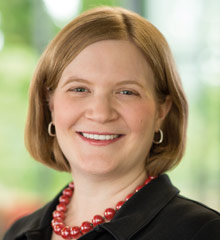How are you, Working Preacher?
When I have been asked that question lately, I’ve replied that I’m fine—but not fine like 2019.
I’m fine like Olaf the snowman is fine when he walks alone through the enchanted forest in the Disney movie Frozen 2. All sorts of strange things are happening around him: leaves pick him up and drop him, giant boulders roll toward him, and he feels like he is being spied on or even pursued.
As he walks, Olaf reassures himself: “This is fine.” “This is normal.” “This will all make sense when I am older!” Though he has no injuries, he’s not exactly “fine.” He’s alone and confused and afraid! Nevertheless, if he’s going to make it to the other side of the forest, he has to keep putting one snowy foot in front of the other. As the saying goes, the only way out is through.
Here we are, looking at the Fourth Sunday of Advent, staring down at Christmas Eve and Christmas Day, and I daresay we are not really fine. Very few of us are preparing in-person church services for this season. More and more families are experiencing economic hardship, even devastation. The air is heavier and heavier with grief. We grieve all we have lost: people, jobs, holidays, opportunities, experiences, time with others—or time alone—and everyday camaraderie.
We are sad. I see it in my students, colleagues, friends, family, and myself. That is not to say, of course, that there are not many occasions for joy, each and every day.
But the collective weight of the ongoing pandemic is pressing down very hard on many of our communities yet again, and how much more so at Christmastime. We proclaim the coming of Jesus this year, as every year, but who can believe it? Do we believe it ourselves?
One of the joys I’ve experienced recently is translating psalms over Zoom with my advanced Hebrew students. Last week we read Psalm 23, which is always a remarkable one to study in its original language, in part because it is so familiar to us in English. Reading it in Hebrew helps us hear its words anew.1 The penultimate line of the psalm is my favorite: Only goodness and covenant love will pursue me all the days of my life (translation mine). The Hebrew verb radaph means to pursue, to chase after, as if trying to catch someone or run down an enemy. The word for “mercy” or “covenant love” is hesed, that peculiar, immersive, active, transformative love that God shows for Israel and requires of us as well (see Micah 6:8).
And so Psalm 23 reminds us that no matter how alone, empty, afraid, weary, or sad we feel, God’s goodness and love are in hot pursuit, chasing us down. We don’t have to go out looking for the presence of God; instead, it is always on its way to us. Perhaps it is when we are out of breath, not able to take another step, that we finally notice goodness and mercy have caught up with us.
+ + +
In this week’s Gospel lesson, Luke reports that Mary, upon being addressed as “favored one” by the angel Gabriel, “was much perplexed by his words and pondered what sort of greeting this might be” (Luke 1:29). I’m struck that the text does not offer that Mary was startled or in awe or even fearful when Gabriel came onto the scene. It’s not the angel’s appearance that perplexes her, according to Luke; it’s the things the angel says.
I wonder if Mary had been accustomed to seeing angels. Some people I know today have a far more immediate, visceral, and ongoing sense of the presence of the divine than I usually do, and maybe Mary was like those folks. Or maybe Mary was indeed terrified, since Gabriel tries to reassure her. Perhaps—if I may be forgiven this gauche comparison—Mary has to push away her fear like Olaf does—“This is fine! This is normal!”—in order to make it through the strange conversation. Gabriel’s extraordinary message concludes with this testimony: “For nothing will be impossible with God.” Nothing. Not even the birth of the savior of the world as a tiny baby in a stinky manger to an unwed teenage mother.
Who can believe it? Do we believe it ourselves?
Maybe “belief” is not the category we need right now. Belief implies some degree of certainty, and of intellectual assent: Having sorted out all the facts and philosophies, now I declare I believe this thing and not that other thing. But hope, not belief, is the watchword of Advent. Hope does not balk at the ridiculous. Hope propels us forward. Like Olaf, we can try to make sense of it all when we’re older. For now, it is enough to put one metaphorical foot in front of the other, walking on our Advent journey in this strange and frightening time, because the only way out is through. As we go, we can be assured God’s goodness and love are chasing after us, and before we know it, we’ll see that they have caught up with us and are holding us fast.
A blessed Advent and Merry Christmas to you, Working Preacher!
Cameron Howard
Notes
- This desire to renew the familiar is probably the reason that the many commentaries on Psalm 23 available here at WorkingPreacher.org all discuss the nuances of the Hebrew, and I commend every one of them to you for more sustained analysis of the psalm.

